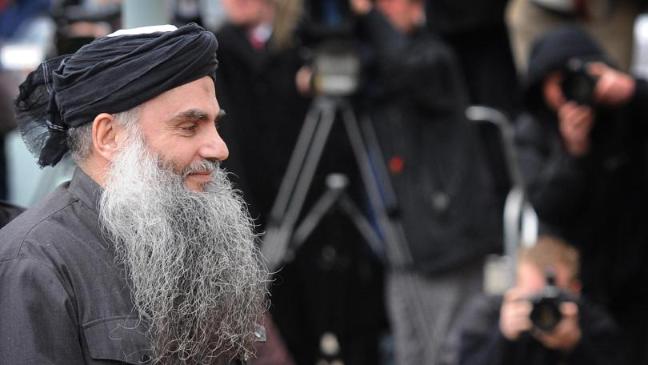Abu Qatada has been found not guilty of terrorism offences by a court in Jordan.
A panel of civilian judges sitting at Amman’s State Security Court cleared the radical Muslim cleric of being involved in a thwarted plot aimed at the Millennium celebrations in 2000.
The ruling comes after Abu Qatada was acquitted in June of conspiring in a 1998 bombing campaign in Jordan.
Abu Qatada was deported from the UK in July 2013.
The verdict follows a long legal battle by ministers in the UK to force Abu Qatada to face trial in his home country.
The trial was conducted at Jordan’s state security court, housed in a military base in Marka, a suburb of the capital Amman.
Abu Qatada was accused of providing spiritual support through his writings to men alleged to have planned a series of atrocities aimed at Western and Israeli targets in Jordan on Millennium Eve.
Jordanian and American investigators had the cell under surveillance and launched raids on homes in Amman in the weeks leading up to New Year.

Prosecutors said that books by Abu Qatada were found and they accused him of supplying funds to the plotters.
He denied the allegations in a trial which was punctuated by a number of outbursts by the accused.
Although Abu Qatada will soon be free, he will not be returning to London.
The radical cleric, whose real name is Omar Othman, was granted asylum in the UK in 1994 but the security service MI5 increasingly saw him as a national security threat.
More than a decade ago Abu Qatada issued rulings justifying suicide bombings. By 2005 the Home Office said he was giving religious legitimacy to those “who wish to further the aims of extreme Islamism and to engage in terrorist attacks”.
While he was in the UK, Abu Qatada had been convicted in Jordan of conspiring in the two Jordanian plots. However, the convictions were eventually thrown out because they had been based on evidence which may have been acquired by torturing his co-defendants.
A treaty signed in 2013 by Jordan and the UK banned the use of such evidence from trials in Jordan involving British deportees.
That removed the final obstacle to deporting Abu Qatada described by British judges as a “truly dangerous individual … at the centre in the United Kingdom of terrorist activities associated with al-Qaeda”.
[youtube IjnhmRtVwk4 650]
